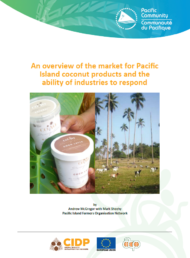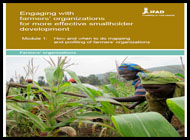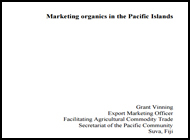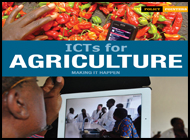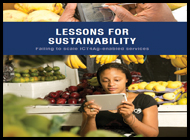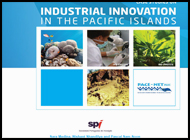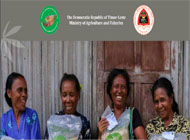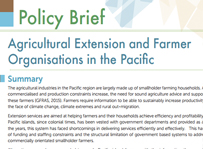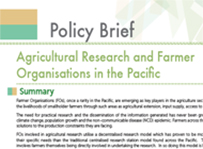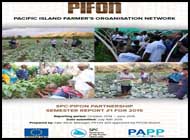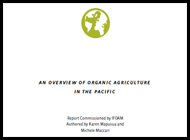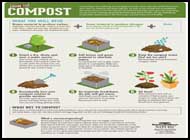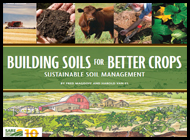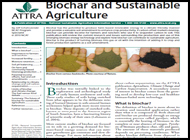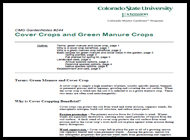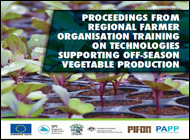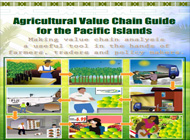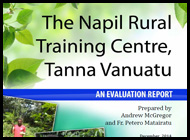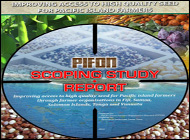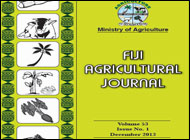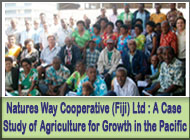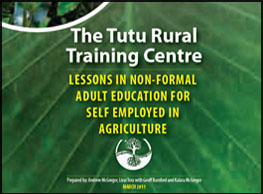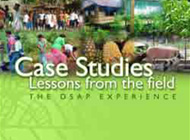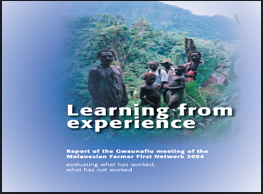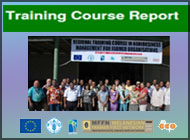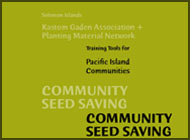The Coconut Industry Development Project’s (CIDP) Coconut Value Chain Market Study that reports on non-traditional coconut products such as virgin coconut oil (VCO), coconut water, coconut cream products and coconut timber/veneer and their potential for coconut producers in the region.
[hr_small]
File Size: 2000 kb
[button_with_link url=”https://pacificfarmers.com/wp-content/uploads/2018/02/CIDP_Report_Final_e-copy_resized.pdf” target=”_blank” class=”” id=”” onclick=””]View PDF[/button_with_link]
Click here to download
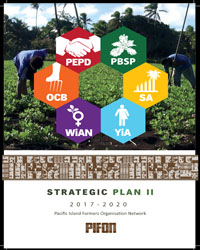
[/one_third]
[two_third_last]
PIFON’s Strategic Plan for 201-2020
[hr_small]
File Size: 12000 kb
[button_with_link url=”https://pacificfarmers.com/wp-content/uploads/2017/12/PIFON-Strategic-Plan-booklet-high-res-for-printing-28.11.17.pdf” target=”_blank” class=”” id=”” onclick=””]View PDF[/button_with_link]
Click here to download
A CTA funded publication through collaboration between the Pacific Islands Private Sector Organisations (PIPSO) and PIFON documenting key lessons learnt from various PIFON supported value chain (VC) trainings including:
• Value chain training for Ginger in Fiji (through Fiji Crop and Livestock Council)
• Value chain training for Papaya in Tonga (through Growers Federation of Tonga)
• Value chain training for Vanilla in Tonga (through MORDI trust)
• Value chain training for Taro in Fiji (through Tei Tei Taveuni and Tutu Rural Training Center)
• Value chain training for Papaya in Fiji (through Nature’s Way Cooperative)
• Value chain training on Spices in Vanuatu (through Farm Support Association and Venui Vanilla)
This publication explores a range of impacts from the initial piloting of value chain trainings; it also summarizes a range of key lessons learnt and presents a set of recommendations for the way forward.
[hr_small]
File Size: 1340 kb
[button_with_link url=”https://pacificfarmers.com/wp-content/uploads/2017/12/CTA_Learning-from-initial-piloting_web.compressed.pdf” target=”_blank” class=”” id=”” onclick=””]View PDF[/button_with_link]
Click here to download
Module 1. How and when to do mapping and profiling of farmers’ organizations (FOs)
How To Do Notes provide tools for good practice design based on best practices collected at the field level. They guide teams on how to implement specific recommendations of IFAD’s operational policies, standard project requirements or financing tools.
File Size: 430 kb
[button_with_link url=”https://pacificfarmers.com/wp-content/uploads/2017/04/Module1_FO_Profiling_web.pdf” target=”_blank” class=”” id=”” onclick=””]View PDF[/button_with_link]
Click here to download
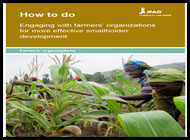
[/one_third]
[two_third_last]
How To Do Notes are prepared by the IFAD’s Policy and Technical Advisory Division and aim to provide practical suggestions and guidelines for country programme managers, project design teams and implementing partners to help them design and implement programmes and projects. They present technical and practical aspects of specific approaches, methodologies, models or project components that have been tested and can be recommended for implementation and scaling up, including best practices and case studies that work and can be used as a model in a particular field.
How To Do Notes provide tools for good practice design based on best practices collected at the field level. They guide teams on how to implement specific recommendations of IFAD’s operational policies, standard project requirements or financing tools.
[hr_small]
File Size: 777 kb
[button_with_link url=”https://pacificfarmers.com/wp-content/uploads/2017/04/HTDN_FO_web.pdf” target=”_blank” class=”” id=”” onclick=””]View PDF[/button_with_link]
Click here to download
[/two_third_last]
[hr]
[one_third]
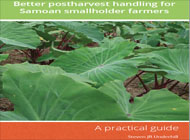
[/one_third]
[two_third_last]
A practical guide to better postharvest handling for Samoan smallholder farmers authored by Steven Underhill Professor of Horticulture at the University of the Sunshine Coast in Queensland, and Principal Research Fellow for the Queensland Alliance for Agriculture and Food Innovation at the University of Queensland in Australia.
[hr_small]
File Size: 4000 kb
[button_with_link url=”https://pacificfarmers.com/wp-content/uploads/2017/04/Better-postharvest-handling-for-Samoan-smallholder-farmers-A-practical-guide.pdf” target=”_blank” class=”” id=”” onclick=””]View PDF[/button_with_link]
Click here to download
[/two_third_last]
[hr]
[one_third]
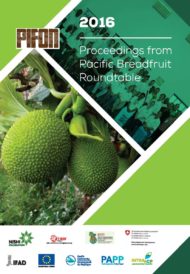
[/one_third]
[two_third_last]
A PIFON report on the proceedings from the Pacific Breadfruit Roundtable held in Nuku’alofa, Tonga on Sep 15 – 16, 2016. This event was the first of its kind for the region.
[hr_small]
File Size: 3000 kb
[button_with_link url=”https://pacificfarmers.com/wp-content/uploads/2017/02/Breadfruit-Report.pdf” target=”_blank” class=”” id=”” onclick=””]View PDF[/button_with_link]
Click here to download
[/two_third_last]
[hr]
[one_third]
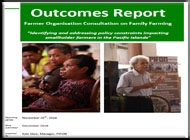
[/one_third]
[two_third_last]
A PIFON report on outcomes from a Farmer Organisation Consultation on Family Farming held in Fiji in November 2016. This consultation meeting was funded by the World Rural Forum.
[hr_small]
File Size: 816 kb
[button_with_link url=”https://pacificfarmers.com/wp-content/uploads/2017/01/2016-Outcomes-Report-Pacific-Family-Farming-Consultation-FINAL.pdf” target=”_blank” class=”” id=”” onclick=””]View PDF[/button_with_link]
Click here to download
[/two_third_last]
[hr]
[one_third]
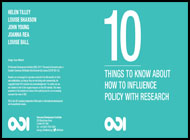
[/one_third]
[two_third_last]
A short publication produced by the Overseas Development Institute (ODI) on how to influence policy with research.
[hr_small]
File Size: 91 kb
[button_with_link url=”https://pacificfarmers.com/wp-content/uploads/2017/01/ODI.pdf” target=”_blank” class=”” id=”” onclick=””]View PDF[/button_with_link]
Click here to download
[/two_third_last]
[hr]
[one_third]
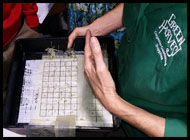
[/one_third]
[two_third_last]
This is a PIFON trip report on the Pacific Open Pollinated Seed Learning Exchange that took place in Brisbane, Australia on Oct 25 – 29, 2016. The exchange was co-organized by PIFON and TerraCircle targeting PIFON Farmer Organization members who work in the area of open pollinated seed production. The Learning Exchange included technical presentations, field visits and hands on training.
[hr_small]
File Size: 5200 kb
[button_with_link url=”https://pacificfarmers.com/wp-content/uploads/2016/11/Trip-Report-for-the-Open-Pollinated-Seed-Learning-Exchange.pdf” target=”_blank” class=”” id=”” onclick=””]View PDF[/button_with_link]
Click here to download
[/two_third_last]
[hr]
[one_third]

[/one_third]
[two_third_last]
Climate change will have a negative impact on the overall productivity of agriculture and forestry across the Pacific Islands region in the coming decades, posing a critical load on food supply systems, economies and livelihoods. That is a key message in this landmark book released on 28th June, 2016 by the Pacific Community (SPC), with the funding support from Australia, in the presence of representatives of more than 20 Pacific Island countries and territories at SPC headquarters in Noumea, New Caledonia.
[hr_small]
File Size:11000 kb
[button_with_link url=”https://pacificfarmers.com/wp-content/uploads/2016/07/Vulnerability-of-Pacific-Island-agriculture-and-forestry-to-climate-change.pdf” target=”_blank” class=”” id=”” onclick=””]View PDF[/button_with_link]
Click here to download
[/two_third_last]
[hr]
[one_third]
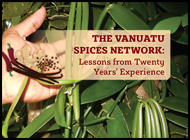
[/one_third]
[two_third_last]
A PIFON publication highlighting a number of key lessons that come from the twenty years of experience with the Vanuatu Spices Network.
This publication was prepared for PIFON member Farm Support Association (FSA) under the MTCP II Programme and is a useful resource for other Pacific Islands involved in spice production and marketing as it highlights key success factors for an export spice industry as well as an interesting model linking small holder farmers in remote locations to agribusiness.
The publication also explores the role of organic certification in the development of the Vanuatu Spices Network and how this has evolved over a period of twenty years.
[hr_small]
File Size: 3000 kb
[button_with_link url=”https://pacificfarmers.com/wp-content/uploads/2016/06/Spice-Handbook-5.pdf” target=”_blank” class=”” id=”” onclick=””]View PDF[/button_with_link]
Click here to download
[/two_third_last]
[one_third]
[/one_third]
[two_third_last]
A study on marketing organics in the Pacific.
[hr_small]
File Size: 383 kB
[button_with_link url=”https://pacificfarmers.com/wp-content/uploads/2016/06/marketingorganicsinthepacific-b.pdf” target=”_blank” class=”” id=”” onclick=””]View PDF[/button_with_link]
[/two_third_last]
[hr]
[one_third]
[/one_third]
[two_third_last]
Can the communications revolution really transform the lives of millions of farmers in developing countries?
[hr_small]
File Size: 16 Mb
[button_with_link url=”https://pacificfarmers.com/wp-content/uploads/2016/06/ICTs-for-Agriculture-Policy-Pointers.pdf” target=”_blank” class=”” id=”” onclick=””]View PDF[/button_with_link]
[/two_third_last]
[hr]
[one_third]
[/one_third]
[two_third_last]
Is ICT sustainable to boost agricultural production and value chains? The stories in this booklet stress the importance of understanding the intended users, ensuring economic viability, fully promoting the service, and making sure the technology offered is the right solution to the problem.
[hr_small]
File Size: 3 Mb
[button_with_link url=”https://pacificfarmers.com/wp-content/uploads/2016/06/Failing_to_scale_-_web.pdf” target=”_blank” class=”” id=”” onclick=””]View PDF[/button_with_link]
[/two_third_last]
[hr]
[one_third]
[/one_third]
[two_third_last]
PIFON member, Nature’s Way Cooperative, features as a case study showcasing innovation potential exhibited by them during the course of the PACE-Net Plus (Pacific Europe Network for Science, Technology and Innovation) project.
[hr_small]
File Size: 2 Mb
[button_with_link url=”https://pacificfarmers.com/wp-content/uploads/2016/09/Case-Studies-on-Industrial-Innovation-in-the-Pacific-Islands.pdf” target=”_blank” class=”” id=”” onclick=””]View PDF[/button_with_link]
[/two_third_last]
[hr]
[one_third]
[/one_third]
[two_third_last]
Quality seed is needed if Timor Leste’s farming families are to have enough to eat.
The Ministry of Agriculture and Fisheries (MAF), through the Seeds of Life program, has been working to
increase food production in Timor-Leste by researching and releasing improved varieties of staple crops
(maize, rice, cassava, sweet potato and peanut) for the past 14 years.
The 12 varieties released to date have 24-131% higher yields than commonly used local varieties. These
new varieties are adapted to local conditions and can be saved for replanting the next season, meaning
farmers can grow more food. The varieties not only produce more, they give farmers more choice over the
crops they plant and help increase biodiversity in Timor-Leste.
To ensure farmers can access these varieties, the Ministry has established the National Seed System for
Released Varieties (NSSRV) so that sufficient quantities of high quality seed are produced locally and
made available in every suco, ensuring farmers have reliable access to good seed at planting time.
The vision is for enough seed of improved varieties to be produced locally to meet up to one-third of total
national seed demand, thus helping Timor-Leste to achieve seed security and sovereignty.
[hr_small]
File Size: 2.1 mb
[button_with_link url=”https://pacificfarmers.com/wp-content/uploads/2016/04/NSSRV-booklet-EN.pdf” target=”_blank” class=”” id=”” onclick=””]View PDF[/button_with_link]
[/two_third_last]
[hr]
[one_third]
[/one_third]
[two_third_last]
The agricultural industries in the Pacific region are largely made up of smallholder farming households. As agriculture becomes more commercialised and production constraints increase, the need for sound agriculture advice and support has never been greater for these farmers (GFRAS, 2015).
File Size: 584 kb
[button_with_link url=”https://pacificfarmers.com/wp-content/uploads/2016/03/FOs-and-Agricultural-Extension-Policy-Brief.pdf” target=”_blank” class=”” id=”” onclick=””]View PDF[/button_with_link]
Click here to download
[/two_third_last]
[hr]
[one_third]
[/one_third]
[two_third_last]
The agricultural industries in the Pacific region are largely made up of smallholder farming households.
File Size: 584 kb
[button_with_link url=”https://pacificfarmers.com/wp-content/uploads/2016/03/Agricultural-Research-and-Farmer-Organisations-in-the-Pacific-1.pdf” target=”_blank” class=”” id=”” onclick=””]View PDF[/button_with_link]
Click here to download
[/two_third_last]
[hr]
[one_third]
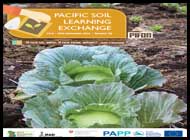
[/one_third]
[two_third_last]
A compilation of what transpired at the Pacific Soil Learning Exchange in Taveuni in September 2015.
[hr_small]
File Size: 3465 kb
[button_with_link url=”https://pacificfarmers.com/wp-content/uploads/2015/11/Pacific-Soil-Learning-Exchange-Booklet.pdf” target=”_blank” class=”” id=”” onclick=””]View PDF[/button_with_link]
Click here to download
[/two_third_last]
[hr]
[one_third]

[/one_third]
[two_third_last]
Farm and forest producer organizations are of critical importance to the sustainable use of our natural resources, now and into the future. So says the growing consensus of global opinion. And they hold the key to overcoming many issues, from poverty and human rights, to environmental degradation and biodiversity conservation. Producer organizations represent the collective voices of farmers and forest- dependent peoples, indigenous groups and rural communities. They, are the building blocks of local democracy, and provide essential services to members. And when truly inclusive and with the right support, management choices are sustainable and the benefits are equitable.
This latest edition of ETFRN News contains more than 200 pages of stories from local producer organizations, associations and federations, and from those that speak for them at national and international levels. Reporting on issues of inclusiveness, this is also reflected in the authorship, with most of the 80 contributing (co)authors from the Global South, representing NGOs, UN organizations, government bodies and private companies as well as producer organizations, a third of them women. The result is a compilation of experiences that adds significantly to a growing body of knowledge. Forest and farm producer organizations speak of their achievements and successes – and challenges, some overcome, some not. They share how they have organized themselves, what support they have received, and whether this was for better or for worse. Some benefits were expected, others unexpected. Problems remain, and some were made worse, even with well-meaning intentions of ‘outsiders’.
[hr_small]
File Size: 3701 kb
[button_with_link url=”https://pacificfarmers.com/wp-content/uploads/2015/09/ETFRN-57.pdf” target=”_blank” class=”” id=”” onclick=””]View PDF[/button_with_link]
Click here to download
[/two_third_last]
[hr]
[one_third]
[/one_third]
[two_third_last]
A semester report on our activities conducted under our partnership with the EU funded SPC implemented Pacific Agricultural Policy Programme. Reporting period: October 2014 – June 2015.
[hr_small]
File Size: 983.66 kb
[button_with_link url=”https://pacificfarmers.com/wp-content/uploads/2015/09/PIFON-SPC_Semester_Report_Noa.pdf” target=”_blank” class=”” id=”” onclick=””]View PDF[/button_with_link]
[/two_third_last]
[hr]
[one_third]
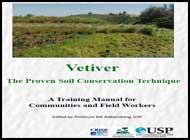
[/one_third]
[two_third_last]
A training manual providing a simple guide of restoration activities that can be undertaken by communities towards managing their watershed environment from the ridge to reef.
[hr_small]
File Size: 1384 kb
[button_with_link url=”https://pacificfarmers.com/wp-content/uploads/2015/09/USP_vetiver-training-manual.pdf” target=”_blank” class=”” id=”” onclick=””]View PDF[/button_with_link]
Click here to download
[/two_third_last]
[hr]
[one_third]
[/one_third]
[two_third_last]
A report commissioned by IFOAM and authored by Karen Mapusua and Michelle Maccari.
The development of organic agriculture in the region might be characterized as driven by farmers organizations and other NGOs, and subsequently taken up by government agencies. Partnerships have been formed that might provide participatory development of the sector.
[hr_small]
File Size: 459.31 kb
[button_with_link url=”https://pacificfarmers.com/wp-content/uploads/2015/08/An-overview-of-organic-agriculture-in-the-Pacific.pdf” target=”_blank” class=”” id=”” onclick=””]View PDF[/button_with_link]
[/two_third_last]
[hr]
[one_third]
[/one_third]
[two_third_last]
A poster example on How To Compost
[hr_small]
File Size: 185 kb
[button_with_link url=”https://pacificfarmers.com/wp-content/uploads/2015/08/How-to-Compost-Poster-New.png” target=”_blank” class=”” id=”” onclick=””]View PDF[/button_with_link]
[/two_third_last]
[hr]
[one_third]
[/one_third]
[two_third_last]
A guide to managing organic landscape refuse
[hr_small]
File Size: 508.68 kb
[button_with_link url=”https://pacificfarmers.com/wp-content/uploads/2015/08/Composting-and-Mulching.pdf” target=”_blank” class=”” id=”” onclick=””]View PDF[/button_with_link]
Click here to download
[/two_third_last]
[hr]
[one_third]
[/one_third]
[two_third_last]
A practical guide to ecological soil management that provides background information as well as details of soil-improving practices.
[hr_small]
File Size: 6760 kb
[button_with_link url=”https://pacificfarmers.com/wp-content/uploads/2015/08/Building_Soils_For_Better_Crops.pdf” target=”_blank” class=”” id=”” onclick=””]View PDF[/button_with_link]
Click here to download
[/two_third_last]
[hr]
[one_third]
[/one_third]
[two_third_last]
A publication of ATTRA – National Sustainable Agriculture Information Service.
Biochar has the potential to produce farm-based renewable energy in a climate-friendly manner and provide a valuable soil amendment to enhance crop productivity. If carbon offset markets develop, biochar can provide income for farmers and ranchers who use it to sequester carbon in soil. This publication will review the current research and issues surrounding the production and use of this emerging biomass energy technology and explore how biochar can contribute to sustainable agriculture. Biochar is the product of turning biomass into gas or oil with the intention of adding it to crop and forest production systems as a soil amendment.
[hr_small]
File Size: 622.27 kb
[button_with_link url=”https://pacificfarmers.com/wp-content/uploads/2015/08/biochar.pdf” target=”_blank” class=”” id=”” onclick=””]View PDF[/button_with_link]
Click here to download
[/two_third_last]
[hr]
[one_third]
[/one_third]
[two_third_last]
Colorado State University Extension Master Gardener Program Garden Notes #244
States the definition of cover crop and green manure crop, the benefits, the recipes, the landscape uses and establishment and care.
[hr_small]
File Size: 121 kb
[button_with_link url=”https://pacificfarmers.com/wp-content/uploads/2015/08/Cover-crops-and-green-manure-crops.pdf” target=”_blank” class=”” id=”” onclick=””]View PDF[/button_with_link]
Click here to download
[/two_third_last]
[hr]
[two_third_last]
Growing vegetables and crops during the off-season (between October and March) has been a major issue for many farmers across the Pacific region. It is in these off-season months, the production of temperate vegetables such as tomatoes, capsicum, English cabbage, lettuces, watermelon and such are strongly hampered by high rainfall and high temperatures.
At a regional consultation in the Western Division, Fiji from June 01 – 05 2015, hosted by PIFON, participants from PNG, Tonga, Vanuatu, Solomon Islands, Samoa and Fiji gathered to exchange and learn new methods in overcoming off-season constraints.
The training workshop was funded by the European Union (EU) through the Secretariat of the Pacific Community (SPC) implemented Pacific Agriculture Policy Project (PAPP).
[hr_small]
File Size: 3000 kb
[button_with_link url=”https://pacificfarmers.com/wp-content/uploads/2015/08/PIFON-Final-Booklet-.pdf” target=”_blank” class=”” id=”” onclick=””]View PDF[/button_with_link]
[/two_third_last]
[hr]
[two_third_last]
This value chain analysis guide is targeting farmers, traders and policy makers. It is designed to be practical and use-able and unlike many other value chain guides that exist, is directed primarily at actors in the value chain.
The guide, produced by Koko Siga Pacific (KSP) with support from the Technical Centre for Agricultural and Rural Cooperation (CTA) is the outcome of participatory consultations with farmers and the private sector to understand what it is that they want in value chains for export markets.
The guide has been used by the Pacific Island Farmers Organisation Network (PIFON) as a training tool in Vanuatu, with PIFON member Farm Support Association and, in Taveuni, Fiji, with PIFON members Tei Tei Taveuni and Tutu Rural Training Centre.
[hr_small]
File Size: 5180 kb
[button_with_link url=”https://pacificfarmers.com/wp-content/uploads/2015/03/agricultural-value-chain-guide-for-the-pacific-islands.pdf” target=”_blank” class=”” id=”” onclick=””]View PDF[/button_with_link]
[/two_third_last]
[hr]
[/one_third]
[two_third_last]
To increase the productivity of traditional farming systems in rural areas, Vanuatu Farm Support Association (FSA) is currently trialling out the Napil Rural Training Centre (NRTC) located at Middle Bush. This non-formal adult education approach is based on the ‘Tutu model’ that was developed at Marist Tutu Rural Training Centre on Taveuni, Fiji.
PIFON has supported a review of the NRTC on Tanna, Vanuatu which was conducted by Dr. Andrew McGregor and Father Petero Matairatu.
This activity was funded by the Pacific Agriculture Policy Programme (PAPP) of the Secretariat of the Pacific Community (SPC) which is an intra-ACP partnership with the European Union.
[hr_small]
File Size: 2600 kb
[button_with_link url=”https://pacificfarmers.com/wp-content/uploads/2015/02/NAPIL-Evaluation-Report.pdf” target=”_blank” class=”” id=”” onclick=””]View PDF[/button_with_link]
[/two_third_last]
[hr]
[one_third]
[/one_third]
[two_third_last]
The Seeds for Pacific Farmers Scoping report is a regional seed scoping study report compiled by TerraCircle consultant, Ms Emma Stone. The report covers opportunities and constraints related to accessing seed in 5 member countries, namely, Vanuatu, Solomon Islands, Tonga, Samoa and Fiji.
This activity was conducted in 2014 with funding from MTCP II.
[hr_small]
File Size: 1642 kb
[button_with_link url=”https://pacificfarmers.com/wp-content/uploads/2015/02/Seeds-for-Pacific-Farmers-Scoping-Report-FINAL.pdf” target=”_blank” class=”” id=”” onclick=””]View PDF[/button_with_link]
[/two_third_last]
[hr]
[one_third]
[two_third_last]
This journal publishes scientific investigations in agriculture, fisheries and forestry that have applications in the region. It will also publish review articles, short notes, book reviews, conference reports, calendar of forthcoming events, invited commentary/insight papers and research articles on pure & applied lab research, field research, land-use surveys, development methods, critical observations on farming practices, extension methods and policy and planning.
Researchers, policy makers and academics in agriculture, fisheries and forestry sectors in Fiji and the Pacific neighbours are invited to publish their findings in this Fiji Agriculture Journal. It is hoped that this journal will produce two publications every year.
[hr_small]
File Size: 6426 kb
[button_with_link url=”https://pacificfarmers.com/wp-content/uploads/2014/07/fiji-agricultural-journal-vol-53-issue-1-2013.pdf” target=”_blank” class=”” id=”” onclick=””]View PDF[/button_with_link]
[/two_third_last]
[hr]
[one_third]
[two_third_last]
Despite identified market opportunities, the Pacific island countries (PICs) have not been a part of the global horticulture revolution. Fiji is finally starting to prove an exception to the rule, with horticultural exports becoming a lead growth sector.
[hr_small]
File Size: 2189 kb
[button_with_link url=”https://pacificfarmers.com/wp-content/uploads/2014/06/Natures-Way-Cooperative-Fiji-Ltd-A-Case-Study-of-Agriculture-for-Growth-in-the-Pacific.pdf” target=”_blank” class=”” id=”” onclick=””]View PDF[/button_with_link]
[/two_third_last]
[hr]
[one_third]
[two_third_last]
This study would not have been possible without the wholehearted support of the Tutu Principal, Fr. Michael
McVerry s.m., and his staff. In particular, Tutu’s staff worked tirelessly on the preparation of a comprehensive
database without which there would not have been sufficient information to undertake the necessary quantitative
analysis.
[hr_small]
File Size: 2889 kb
[button_with_link url=”https://pacificfarmers.com/wp-content/uploads/2014/07/Tutu-Book.pdf” target=”_blank” class=”” id=”” onclick=””]View PDF[/button_with_link]
[/two_third_last]
[hr]
[one_third]
[/one_third]
[two_third_last]
This case studies book documents the results of the Development of Sustainable Agriculture in the Pacific project (DSAP).
[hr_small]
File Size: 2917 kb
[button_with_link url=”https://pacificfarmers.com/wp-content/uploads/2014/05/1493-CASE-STUDIES-FINAL_low_rez.pdf” target=”_blank” class=”” id=”” onclick=””]View PDF[/button_with_link]
[/two_third_last]
[hr]
[one_third]
[/one_third]
[two_third_last]
The Melanesian Farmer First Network started in late-2002 with the aim of assisting participating organisations develop their capacity to plan and manage projects in sustainable agriculture, community health and development.
[hr_small]
File Size: 3952 kb
[button_with_link url=”https://pacificfarmers.com/wp-content/uploads/2014/05/MFFN-Learning-from-experience.pdf” target=”_blank” class=”” id=”” onclick=””]View PDF[/button_with_link]
[/two_third_last]
[hr]
[one_third]
[two_third_last]
As farming becomes more commercial and market oriented, small farmers struggle to maintain their share in the market. The formation of farmer groups and organizations and coordinated marketing is one way to overcome the problem of ‘smallness’ and supply produce to expanding markets.
[hr_small]
File Size: 1353 kb
[button_with_link url=”https://pacificfarmers.com/wp-content/uploads/2014/06/Regional-training-course-in-Agribusiness-Management-for-FOs-2010.pdf” target=”_blank” class=”” id=”” onclick=””]View PDF[/button_with_link]
[/two_third_last]
[hr]
[one_third]
[/one_third]
[two_third_last]
This manual is designed as a tool for small scale, community-based (local and regional) seed production and distribution centres.It may also be useful for village farmers to assist in producing high quality seed for their gardens.
[hr_small]
File Size: 3997 kb
[button_with_link url=”https://pacificfarmers.com/wp-content/uploads/2014/06/Community-Seed-Saving.pdf” target=”_blank” class=”” id=”” onclick=””]View PDF[/button_with_link]
[/two_third_last]
[hr]

